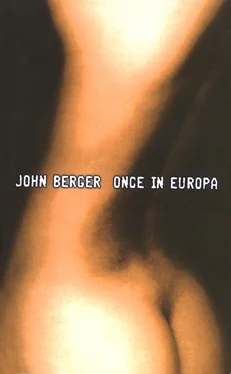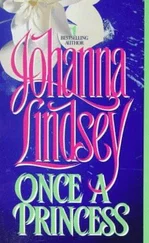John Berger - Once in Europa
Здесь есть возможность читать онлайн «John Berger - Once in Europa» весь текст электронной книги совершенно бесплатно (целиком полную версию без сокращений). В некоторых случаях можно слушать аудио, скачать через торрент в формате fb2 и присутствует краткое содержание. Год выпуска: 2014, Издательство: Bloomsbury Publishing, Жанр: Современная проза, на английском языке. Описание произведения, (предисловие) а так же отзывы посетителей доступны на портале библиотеки ЛибКат.
- Название:Once in Europa
- Автор:
- Издательство:Bloomsbury Publishing
- Жанр:
- Год:2014
- ISBN:нет данных
- Рейтинг книги:3 / 5. Голосов: 1
-
Избранное:Добавить в избранное
- Отзывы:
-
Ваша оценка:
- 60
- 1
- 2
- 3
- 4
- 5
Once in Europa: краткое содержание, описание и аннотация
Предлагаем к чтению аннотацию, описание, краткое содержание или предисловие (зависит от того, что написал сам автор книги «Once in Europa»). Если вы не нашли необходимую информацию о книге — напишите в комментариях, мы постараемся отыскать её.
Once in Europa — читать онлайн бесплатно полную книгу (весь текст) целиком
Ниже представлен текст книги, разбитый по страницам. Система сохранения места последней прочитанной страницы, позволяет с удобством читать онлайн бесплатно книгу «Once in Europa», без необходимости каждый раз заново искать на чём Вы остановились. Поставьте закладку, и сможете в любой момент перейти на страницу, на которой закончили чтение.
Интервал:
Закладка:
The winter passed slowly. One Saturday we went for a walk in the snow. He was wearing blue wool mittens. As we walked, his arm round my neck and one of his huge blue woolen hands on my shoulder, he told me a story.
Once there were two bears asleep under a rock. Their fur was all white with hoarfrost. The smaller of the two opened her eyes.
Mischka! she growled.
Mouchenka! growled the other.
We can speak! Say something. Say a word.
Honey, he growled.
Snow, she said.
Spring, he said.
Death, she said.
Why death? asked Mischka.
As soon as we speak, we know death.
God! said Mischka and pushed his muzzle into her neck.
Why does God have so little power? asked Mouchenka, and placed a paw on his back.
How should I know?
Everything that exists hides him, she said.
He’s in his lair, he said.
He could come out, couldn’t he? complained Mouchenka. Mouchenka moved her head from the shelter of the rock and the snow fell on her large black muzzle. Mischka, why does he have so little power?
Because he created the world, growled the bear.
So he spent all his power doing that and has been exhausted ever since! She blew the snow off her mouth.
No, said Mischka.
What do you mean, No?
He could have created everything differently so it did exactly what he wanted.
That would have been better?
Yes.
For a long while the two bears said nothing. At last the she-bear said: If it did exactly what he wanted, no one would recognise him! Don’t you see? There’d be no need to recognise him. There’d be nothing else but him!
Mouchenka! You were simpler when you couldn’t speak.
As things are, she went on, he hopes to be recognised all the while. Keeps sending reminders. Look at the snow falling, Mischka, it’s falling on every pine needle.
He’s clever, growled the he-bear, he’s made it all so he stays hidden! He scratched the fur on her hip with his paw. He’s made it all so he can be left in peace!
No, no, said Mouchenka, God made the world as it is, so he should be needed. It’s what he wanted.
At that very moment two shots rang out, and a hunter shouted: Bagged the two of them!
The blood of the two bears stained first their fur and later the snow.
Christian is pointing at something below. He is wearing the woolen gloves which I knitted for him. I can’t make out what he’s pointing at.
The next weekend I suggested Stepan should come to the house. I told him about my brothers. I was hoping that if Mother saw him she might relent a little. Since the morning when she had thrown the water in the stable, she hadn’t addressed a single word to me.
Not yet, Dilenka, not yet. You take a man home for the first time and everyone looks at him and starts wondering about the future, they try him on — like a pair of trousers — to see how he fits. If I were your age, but I’m a fully grown man, a foreigner, I don’t have anything here, and they’ll need a lot of reassuring — it’s too soon, I don’t know yet where to take you. Let’s wait a little.
One Saturday Stepan came to Cluses by the midday bus. He wanted to see the room in the widow Besson’s house, where I lodged. This time it was I who was against the visit. The room was too small and the bed took up half the space. Instead, I had a present for him. I’d wrapped it up in a scarf of mine, a white chiffon scarf.
What can it be? he asked.
It was a hip flask for gnôle with leather round it. I saved up for a month to buy it. Stepan had complained about the cold when he was working on the night shift.
Charge Peter with shovels, six tons, schest ! Stay near and his heat dries up the sweat so it burns you. Step back and you freeze in the night air. Minus twenty-eight. Minus dvadtzat vossiem .
He taught me to count in Russian, and I learnt like boys learn to imitate birds.
May a mouthful of gnôle on your night shift keep you company between the hot and the cold! I wrote that sentence on an envelope and I stuck the envelope to the flask before I gave it to him.
When he read the message on the envelope, he threw the flask up in the air and caught it in one hand. We were standing in front of the bus station in Cluses. Then he kissed me. On the mouth. Each time it was for longer.
Father’s friend, César the water-diviner, used to hold a pendulum over a local map and wherever there was buried water in the earth, it began to turn in circles like a duckling. Am I circling over the Mole because on a Sunday in May Stepan and I climbed there to pick globeflowers? A woman I could shout to on the path below is wearing a dress I never had. How much we will be forgotten!
Whilst we climbed, Stepan told me about his childhood. I was brought up, he said, to the smell of fish glue — the smell of the ocean bed. And I don’t know if you’ll believe me but it’s true: I could hold nails between my teeth as soon as I was eating solid food. I made my first chair when I was fifteen, and Father maintained — like a true disciple of Makhno — he maintained it was better than any throne in the world!
The sun was hot and it was the time of May when the grass goes mad with growth. As a child I believed I could see it growing. The tin roofs of the chalets when we reached the alpage were crackling in the heat. Stepan didn’t know where the noise came from. Somebody’s throwing stones! he said. There was nobody. Just the two of us.
My father and I disagreed about one thing, he went on, only one thing and what a thing! Stepan had never seen globeflowers before. I picked some for him. They’re like brass buttons, he said, who cleans them? I laughed. We disagreed about one thing, he went on. I thought of Russia as my country and I wanted to go back and my father, who was really my stepfather, was against it. When I was eighteen, after the victory over the Germans, I filled in the forms for repatriation. Repatriation! he screamed at me in Russian. You weren’t even born there! You don’t know anything! You have to be Russian to be so stupid!
Stepan held five golden flowers to my shoulder and said in his singsong voice: Five Stars! The rest is ashes. You’re a General. Generalissimo Odile Achilovich!
Did you get your passport? I asked him.
No, they refused me. No homeland.
I put our bunch of flowers in a little spring so they could drink, and we lay on our backs looking up at the sky, just as now I’m on my stomach looking down on the earth. Stepan put his hand on me and started to caress me. Today I won’t stop him, I said to myself. He was talking about cities, asking me which one I’d like to go to — to London, to Milan, to Rotterdam, to Oslo, to Glasgow? It had never occurred to me before that somebody could choose where to live. It seemed unnatural. No, said Stepan, it’s simple with these — he held up both huge hands over my face — I can work anywhere in the world. Where, where will we go, Odile? Instead of answering him, I scrambled to my feet and ran like a wild thing down the hill towards the pine trees. When he came after me I shouted at him: You’re a Bohemian! A Bohemian, that’s what you are. I never want to see you again! I left him at the bus station. I wouldn’t let him walk me to the widow Besson’s house. I gave her the flowers and the old lady thanked me and touched my forehead. Haven’t you a little fever? You look all flushed. I shook my head to hide my tears from her. Go to bed, Odile, and I’ll make you some verveine tea, she said. Perhaps you had too much sun.
After the day of the globeflowers, Stepan posted me a letter. It was the only piece of writing I ever saw by him. I will look to see whether it’s still in the tilleul tin. He had written everything in capitals, as children do when they are first learning. The letter said: We need go nowhere, we’ll stay here, I’m arranging it, will be waiting for you by the bridge, Saturday. Mischka. I never heard him before or afterwards refer to himself as Mischka.
Читать дальшеИнтервал:
Закладка:
Похожие книги на «Once in Europa»
Представляем Вашему вниманию похожие книги на «Once in Europa» списком для выбора. Мы отобрали схожую по названию и смыслу литературу в надежде предоставить читателям больше вариантов отыскать новые, интересные, ещё непрочитанные произведения.
Обсуждение, отзывы о книге «Once in Europa» и просто собственные мнения читателей. Оставьте ваши комментарии, напишите, что Вы думаете о произведении, его смысле или главных героях. Укажите что конкретно понравилось, а что нет, и почему Вы так считаете.












